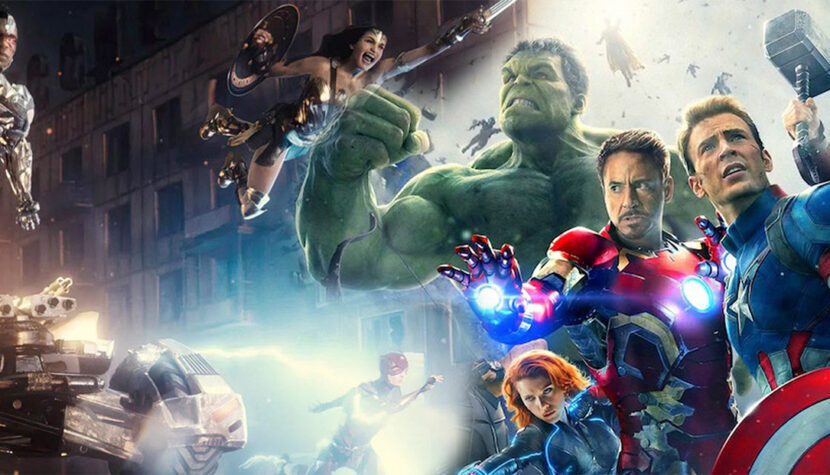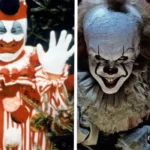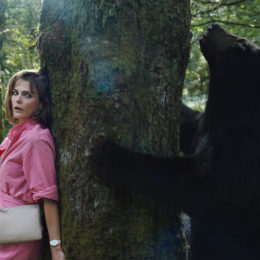How are DC movies better than MARVEL movies?

For many fans of superhero cinema in the form of great universes, such a topic may seem controversial, because for some time Marvel has dominated the market, and DC is still trying to make up for the losses. But does he have to take part in this race for the viewer, the race of film rats? For years, the DC universe has been different from Marvel, both before the formal establishment of the DCEU and after Man of Steel paved the way for future films of the universe. They differ in their approach to villains, the use of humor, aesthetics, quality of music, as well as the form of presenting the character’s personality. Is it all better? Certainly different, less focused on fairy-tale entertainment, and more pretending to be a great cinema about serious problems.
Well, is it pretending to be a great cinema, or is it actually a great cinema? Let’s look at it from the perspective of stories featuring specific characters, whether within the entire DCEU universe or individually. DC movies have always been able to focus on a very intimate story of one character, deftly connecting it with many others within the universe, but never in such a way that the others in any way distracted or competed with the main one. Marvel’s world is different, more crowded, shouting, disorganized, focused on a multiplicity show. Certainly, millions of viewers find themselves in it, but this approach will never be great cinema in the artistic sense. It can be great in terms of momentum, special effects, etc. However, we should expect from the cinema a story that will appeal to us and at the same time will be a challenge for us to understand it. DC protagonists – e.g. Batman, Joker or even Henry Cavill’s Superman – are characters that leave no room for discussion as to whether they are the main characters. And this approach is connected with another. In DC, history is more respected, a story that shouldn’t be gimmicky – only. Yes, the spectacle is important, but it does not dominate the presentation of the character’s properties, her character, which remains in the memory for a long time. In the case of Marvel, this trick has only really been successful in the case of Thor, even if his character is immersed in surrealism and jokes.

And we know perfectly well that the joke in Marvel movies reigns supreme. And this, together with the age classification of these productions, can be a problem. Sometimes you feel like Marvel characters are joking in the most inopportune situations, and that’s all. After watching a few productions, you can already guess what the character of these jokes will be. They will usually be a simple mockery of the current situation of the characters, although it would not be deadly difficult. DC has always been more serious in this respect. Sometimes it can be excessive, because it is difficult, for example, to see even a shadow of slack in the form of Batman. There is a darkness almost comparable to that experienced by his Gotham antagonists. How about the Justice League? The joke does appear, but it does not cover the plot, it does not disturb its rhythm, however pathetic it may be. In Marvel, the mixing of solemnity, which is suddenly destroyed by some forced age category with a gag, sometimes completely knocks you out of the rhythm of watching the entire production. So I have no doubt that if I had to choose, I’d prefer DC’s uninterrupted, existential pathos over Marvel’s wobbly solemnity.
Related:
However, it cannot be overlooked that it was Marvel that created a much more profitable universe than DC. And this was probably thanks to the huge research work on the taste of viewers and analyzes of how to gain crowds of fans with the largest possible age range through the plot. So, in the light of this research, did the directors and screenwriters have any deeper influence on the story told in the films? Not so great as to push his artistic ideas in line with the marketing direction, this money-making machine that Marvel has developed to perfection.
The world of DC, compared to this approach, is a much more original, sometimes even artistic world. Often using surreal motifs to create characters and the world presented, not caring what the viewers say. Of course, DC is also a machine, but it gives artistic freedom and allows directors to take risks. Of course, now someone might say, “What about Taika Waititim?” Yes, I agree, in the world of Marvel such a creator is a sensation. Anyway, some time ago I considered in a column whether the character of Thor created by Waititi would stay in the MCU. You can have doubts about it, because Thor clearly begins to stand out from the rest of Marvel’s superheroes, in some way fitting into this text about qualitative differences in favor of DC. Soon we will probably see if the MCU is artistically capacious enough to accept such a Thor, of course, if Chris Hemsworth decides to play him in this form.

Staying still in the thread of artistry and the way of expressing emotions in superhero films, what stays in our minds is reinforced by music, which, thanks to its quality, can function as an independent element in many productions, creating its own, non-visual world. In the history of film music, legendary soundtracks by, among others, Vangelis, Hans Zimmer, John Williams, Angelo Badalamenti or even Ennio Morricone. Within DC itself, Hans Zimmer plays an extremely important role. Without him, we wouldn’t have gotten the great music for Man of Steel and The Dark Knight. If we go deeper into the world of DC, of course the legendary Danny Elfman will appear with the theme of the first Batman. Let’s not forget about the extraordinary Junk XL. What about Marvel? The music is gimmicky, slightly light, diatonically predictable, but the theme of Avengers catches the ear and retains the timeless character that film music should contain. In general, however, it is worse with an individual approach. In Marvel, the music is completely subservient to the image, in DC it co-creates the image. So this is the qualitative difference in music between these two universes.
And it just so happened that we will end this killing off of the Marvel stable with a reflection on the graphic style of speech in both universes and the qualitative differences between them. Well, the accusation that Marvel does not pay attention to the post-production of its films would be completely wrong, because it is not. There is, however, a difference in the school painting of the landscape as part of group exercises in oil painting straight from paintings bought at St. Florian’s Gate in Krakow, with the same motif being depicted by the hand of, for example, William Turner or Pieter Bruegel. It’s a bit like that with Marvel and DC. Marvel watches over the uniformity of its productions, which deprives creators of creativity. This can be seen in the approach to photography, special effects and twists. DC is experimenting with the camera, color range and even the aspect ratio. You can see that he is looking for the right way to express himself, rather than creating an unambiguous, rigid environment that will never change.





